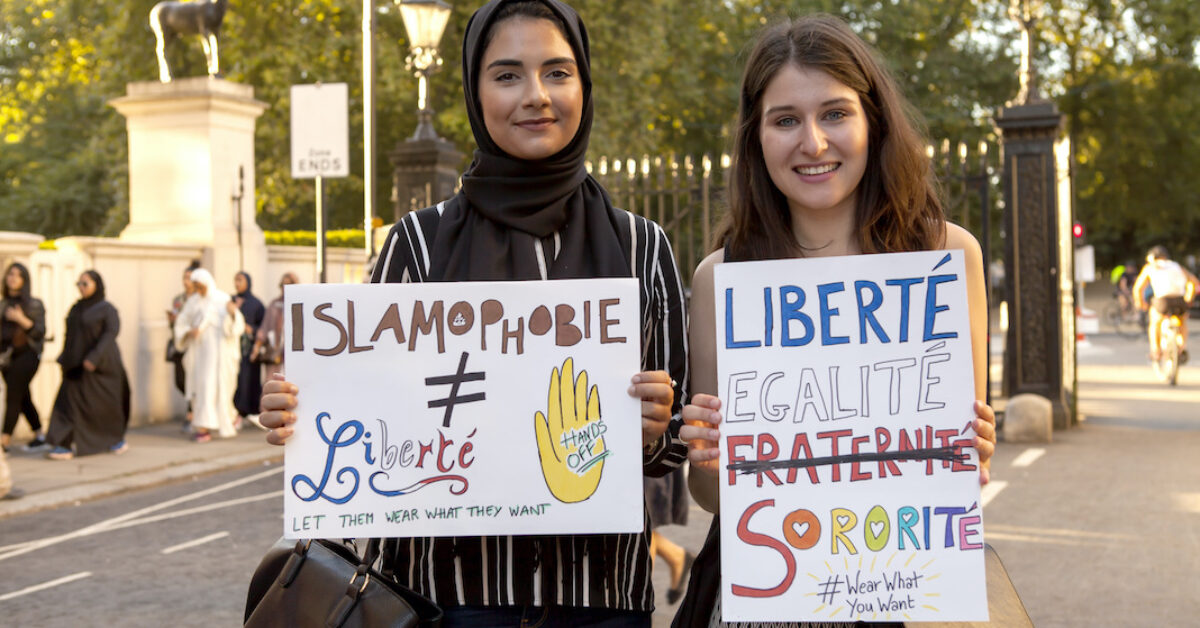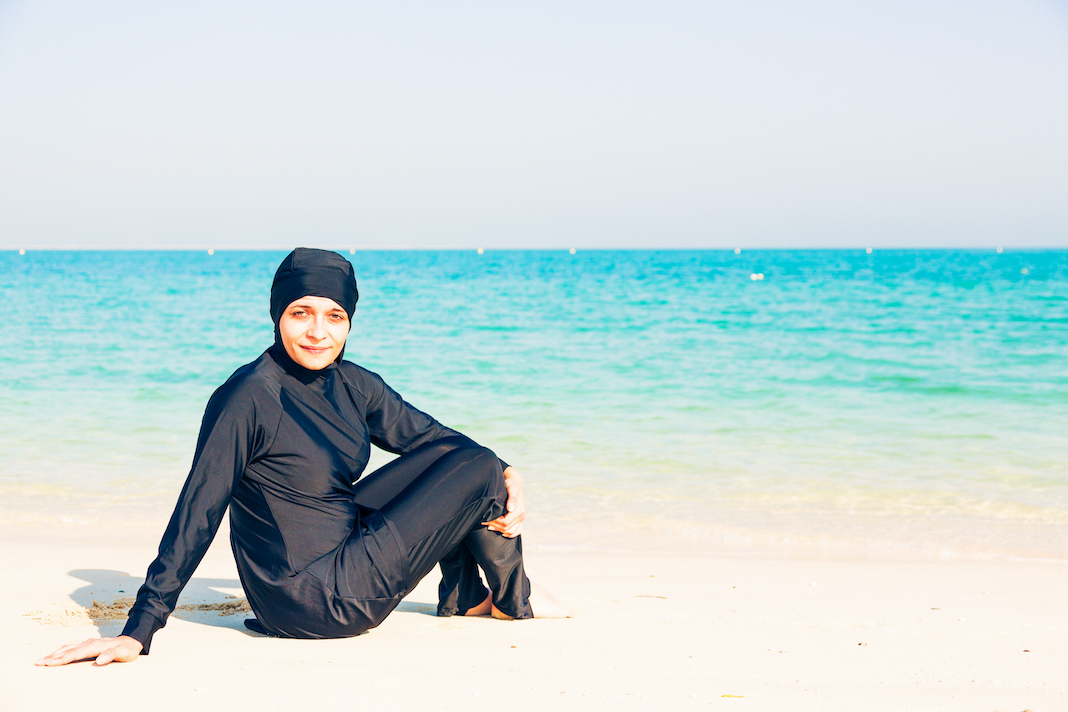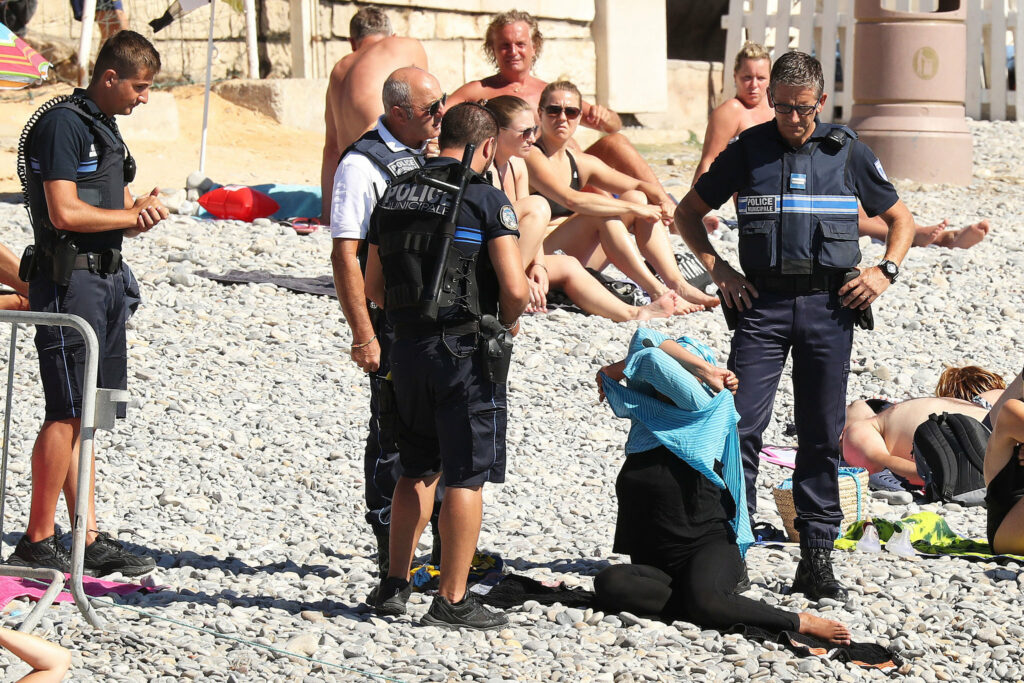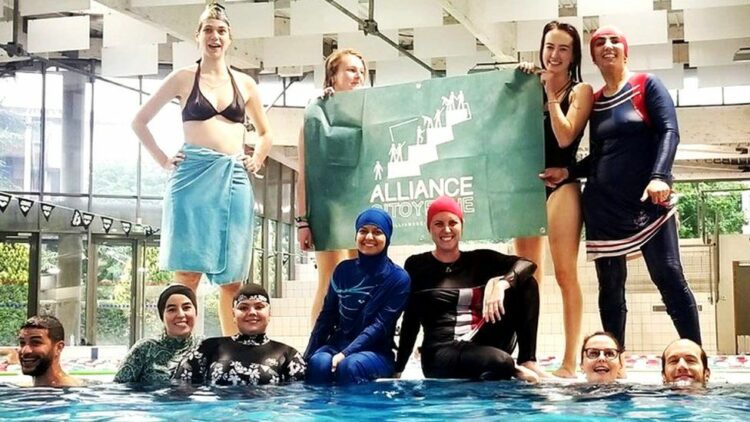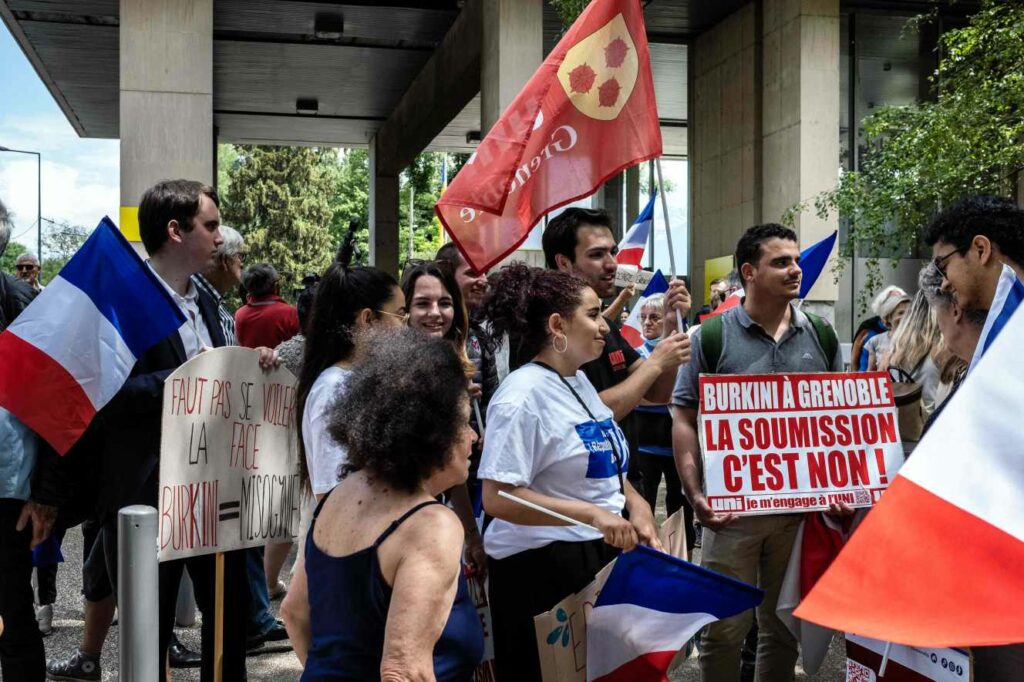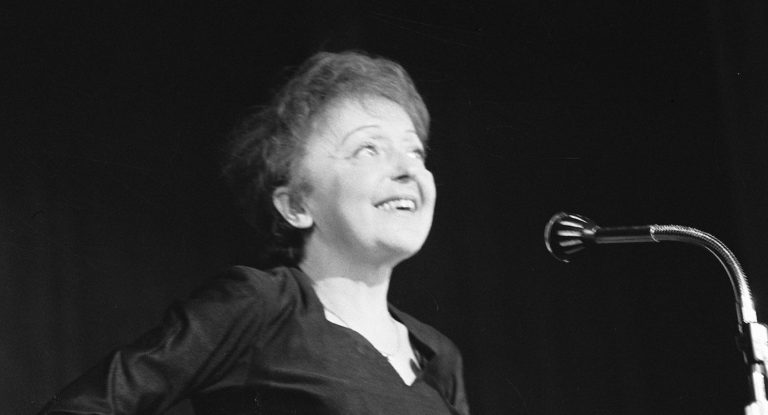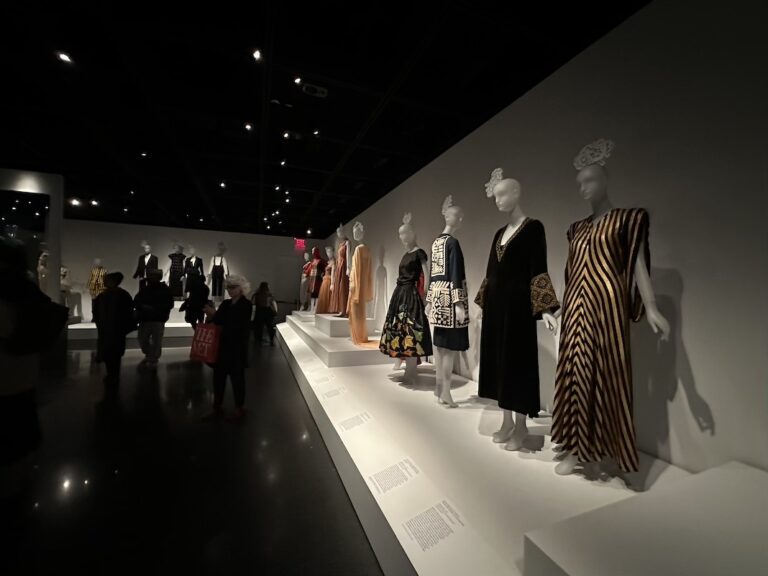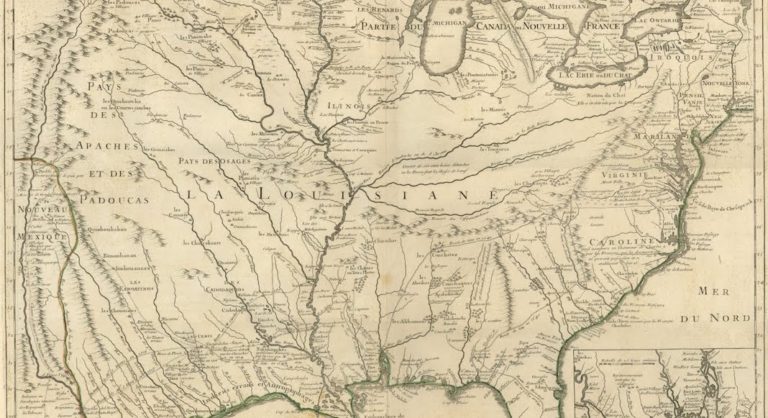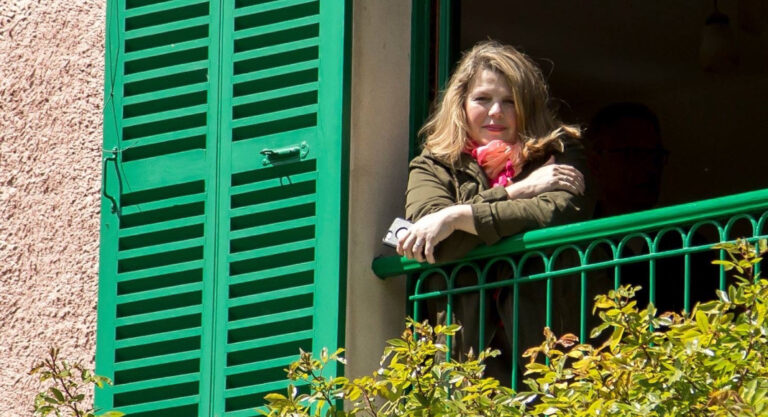This past summer, while some were swimming in France others were battling what to wear when swimming in France. More specifically, the issue was (and is) the burkini, a type of swimsuit that covers the whole body, including the head and hair, leaving only the face, hands and feet bare.
The history of this argument began in earnest in 2016 when a number of French municipalities, notably along the French Rivera, banned clothing that “overtly manifests adherence to a religion at a time when France and places of worship are the target of terrorist attacks.” At that time, France was reeling from a number of violent attacks by Islamic extremists, including the massively fatal attacks at Charlie Hebdo and the Bataclan. Christian Estrosi, Nice’s deputy mayor, argued that, “hiding the face or wearing a full-body costume to go to the beach is not keeping with our ideal of social relations.” As a result, the burkini was banned on public French beaches and at pools. Many local leaders invoked the French principle of laïcité (secularism) in the public sector in support of the ban. Laïcité is, after all, integral to French history, culture, and practice—the idea being that religion is a private matter, and not one to be expressed through outward symbols of spiritual belief.
On August 24th, 2016, photos were released of a woman being approached by armed male police officers, demanding that she remove a long-sleeved tunic and head covering. The police determined that she was not in “an outfit respecting good morals and secularism.” This event, as well as other similar incidents of women in burkinis being approached by police or asked to leave beaches due to their garments, eventually led to an appeal by the Human Rights League, a French NGO that works to observe and defend the Droits de L’Homme (Rights of Man) in France.
As time went on, and despite Nice and several other beach towns’ bans on burkinis, France’s top administrative court found that a burkini ban went against principles of “fundamental freedoms” like “freedom to come and go, the freedom of conscience and personal liberty.”
Reactions to the original 2016 burkini ban and its subsequent dismantling were varied. Caroline Fourest, a radio presenter for France Culture, editor of the feminist magazine ProChoix, and former columnist for Charlie Hebdo, argued that banning the burkini on the beach is incoherent and inefficient as it will “facilitate a propaganda of victimhood,” and turn the burkini into a trendy political statement amongst young and impressionable people. She further described burkinis as “regressive and sexist symbols” used to control women’s bodies and denies that this clothing is a “sacred object or pillar of Islam.” In other words, she’s anti-burkini, but also anti-ban.
This past spring and summer, in the southeastern city of Grenoble, a French civil rights group called Alliance Citoyenne committed itself to gathering signatures, peaceful protesting, and lobbying in an effort have the city council allow burkinis and other covering swimwear in public spaces.
And, on May 16th, their efforts came to fruition; Eric Piolle, the mayor of Grenoble, began to allow burkinis at public pools. Many members of Alliance Citoyenne celebrated the new policy by stating, “We got this issue on the town council’s agenda and are supported by the mayor, […] We are now taken seriously by feminist organizations who didn’t consider our struggle feminist at first. These are victories for us and for Grenoble.”
In a recent NPR interview with Alliance Citoyenne organizers, Yasmina and Anissa (they didn’t give their last names due to ongoing online threats) Yasmina stated, “Not letting women wear what they want is as oppressive as forcing women to wear the veil […] it’s two sides of the same coin: Oppressors who want to impose clothing restrictions on women.” Alliance Citoyenne has been championing the “Mon Corps, Mon Choix, Mon Maillot” (My Body, My Choice, My Swimwear) campaign since 2016 in an effort to combat French policies which they argue are repressive and enforce a French ideal of womanhood that may not be inclusive to all women.
The May Grenoble celebration was short-lived, however. Anti-burkini protestors took to the streets of Grenoble and also all over the Auvergne-Rhône-Alpes region of southeastern France. Laurent Wauquiez, a prominent leader in the area vowed to withdraw his political and economic support for the city of Grenoble stating, “I am convinced that what Mr. Piolle is defending is a dreadful dead-end for our country.”
Subsequently, the city’s top government agents blocked the policy, arguing that the burkini was a violation of laïcité and an attack on Republican values. The issue went to the Conseil d’État (Council of State). Finally, on June 21st, the Council of State ruled in favor of Grenoble’s top government, arguing that Mayor Piolle’s policy sought to “satisfy a religious demand” and stands against “the neutrality of public services.”
This decision has left France at a crossroads: From a legal perspective, some argue that despite France’s culture and policy of laïcité, secularism only applies to “conspicuous religious symbols ” in public institutions like libraries, schools, and government buildings—not all public spaces. and not pools or beaches. Others, like Roseline Letteron, a feminist and professor of public law, argued in Le Monde, that the burkini represents “the subjugation of women,” and thus she not only views Mayor Piolle’s decision as regressive, but she also wholly supports the burkini ban as a move towards female liberation. But, the question begs to be asked: To be French and live in France as 1st class citizens, do all women need to embody “secularism” and the traditional French tenets of a liberated woman?
Arwa Mahdawi is the author of Strong Female Lead, a non-fiction investigation and analysis of feminist leadership. In The Guardian she responded critically to the burkini ban in Grenoble’s public pools. Mahdawi stated, “while it may be dressed up with arguments about secularism (laïcité), the backlash against burkinis has obvious roots in France’s deep Islamophobia.” Indeed, despite the international attention to French hijab bans in the past 6 years, France’s history of institutionally controlling Muslim dress dates back to 1989, when girls were excluded from middle school for wearing headscarves. Most importantly, Muslim women–worldwide– have often been the subject of debate, but are most often barred from a conversation that is conspicuously dominated by men, non-Muslim politicians and mainstream feminists.
It is important to note that French feminism is historically white and secular or culturally catholic at best. Rokhaya Diallo is a self-described “intersectional and de-colonial feminist,” a prolific journalist, author, and one of France’s leading activists. In an interview with Ms., she outlined why mainstream French feminists have supported a hijab ban; “The hijab ban was supported mainly by French feminists who said Muslim women must liberate themselves by removing the headscarf, which to me is quite oppressive. I see this as a very colonial way of thinking about how women should liberate themselves. They should free themselves while assimilating and looking like the traditional French woman?” Indeed, Diallo and many other feminists who consider the term feminist to “include all these minority denominations” (i.e. race, class, religion, sex etc.) reject a universal feminism that is inherently white, “bourgeois,” and does not account for the specific problems of women who are marginalized beyond their sex.
Amongst feminist activists and supporters of women’s rights, the burkini should not be an issue of division, but instead another facet in understanding the varied understandings of female equality and liberation. Intersectional feminism is the ability to look beyond the homogenized beginnings of feminist movements and, instead, incorporates the ways in which different women experience institutions, oppression, and discrimination. Indeed, feminists should advocate for the bodily autonomy, agency, and societal freedom for all women—regardless of religion, ethnicity or class. Giving women the right to choose whether or not they wear a burkini in public spaces is crucial in the move towards feminist policy and inclusion of minority women in every aspects of French society.
Charlinda Banks is a junior at Brown University studying International and Public Affairs & Literary Arts. She was a summer intern at Frenchly in 2022. She is passionate about all things francophone and creative writing.

